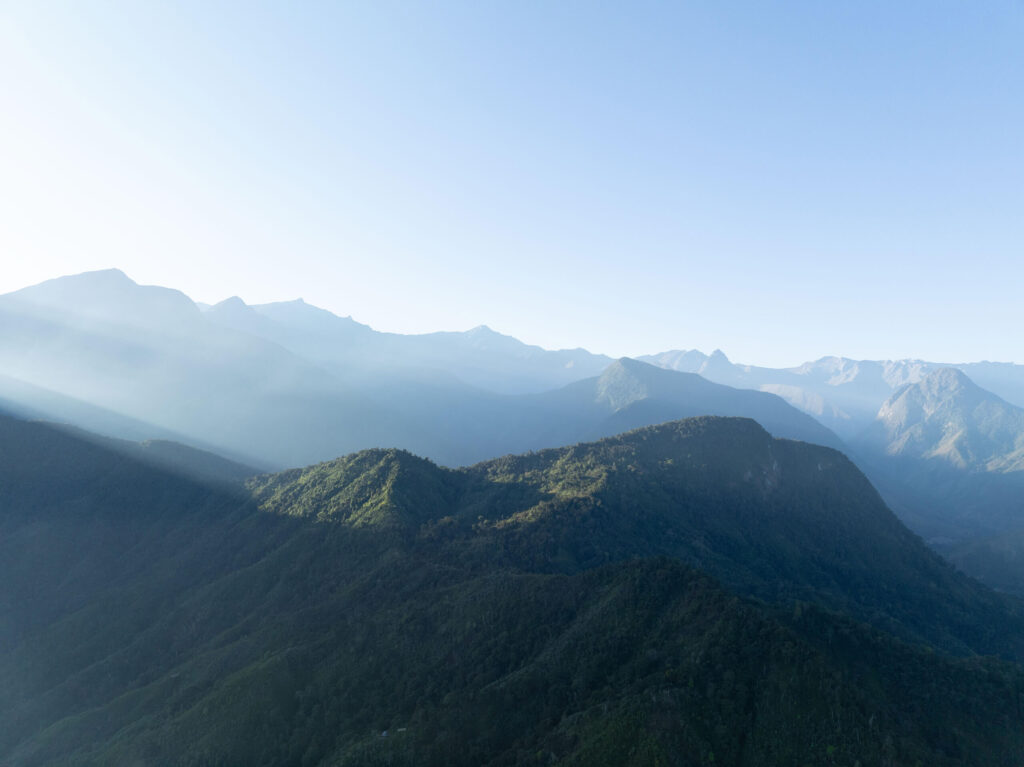
Providing future-fit education
We believe the future is digital and regenerative. We support indigenous youth with future fit skills such as filmmaking, editing, storytelling etc. to enable them to tell their own story. At the same time we educate non-indigenous people about indigenous wisdom.
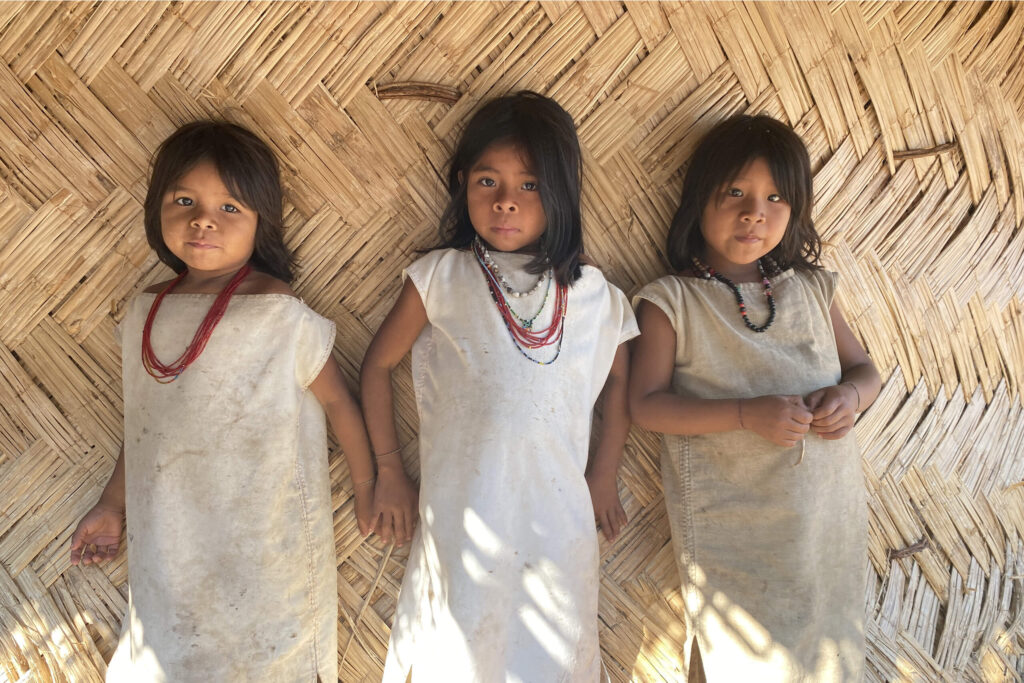
Bringing future fit skills to indigenous youth
Being able to tell your own story can be one of the most empowering experiences. Indigenous people have often suffered from the narratives of colonising societies. But the times are changing. Social media and the internet enable indigenous communities – and especially their youth – to be able to take the narratives about them into their own hands.
We support them with education in cinematography, storytelling, etc., so they can become confident content creators and even get economic opportunities through their skills.
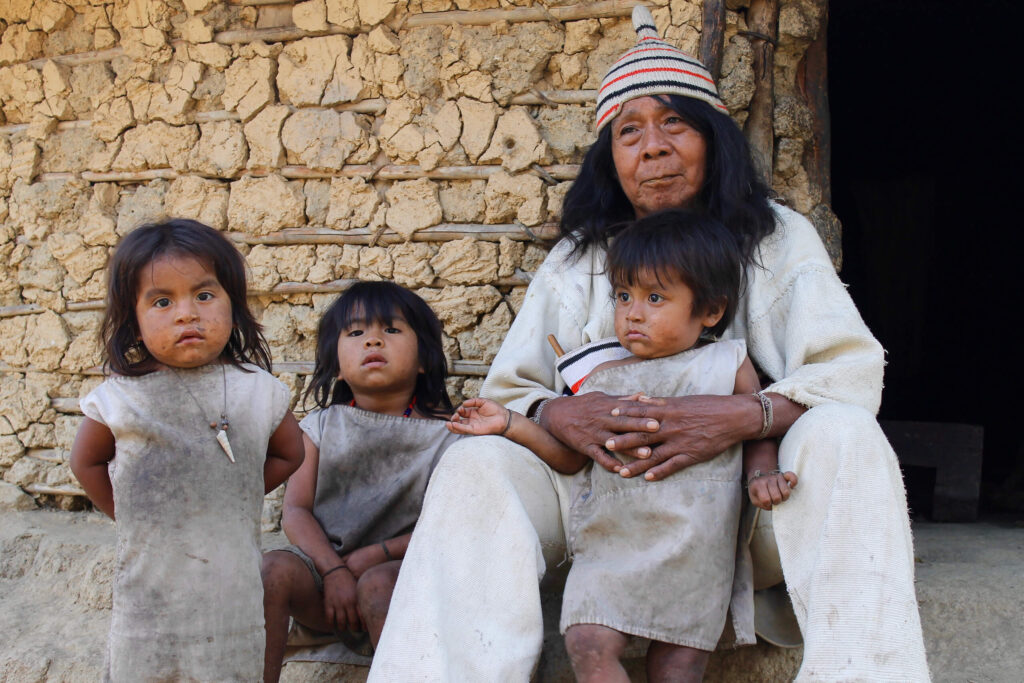
Bringing indigenous wisdom to non-indigenous youth
Our modern education systems miss out on many of the most essential aspects of life. Some of these most important aspects such as relationships, respect for nature, community, etc. are still present and taught in traditional education of indigenous people.
Through exchanges, workshops and encounters we facilitate the exchange of education and knowledge.
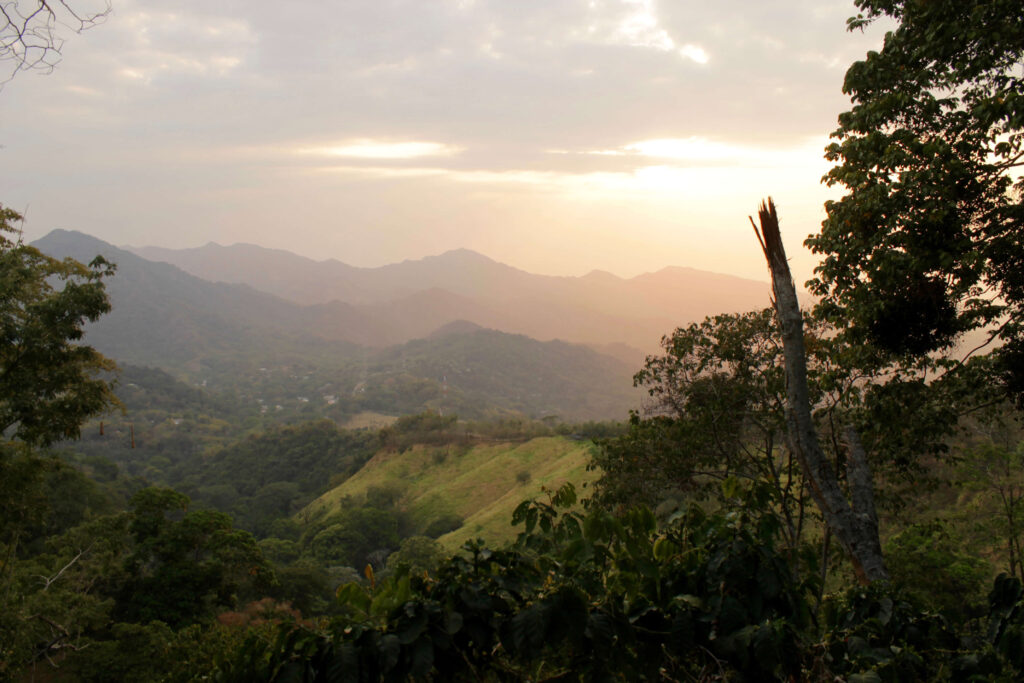
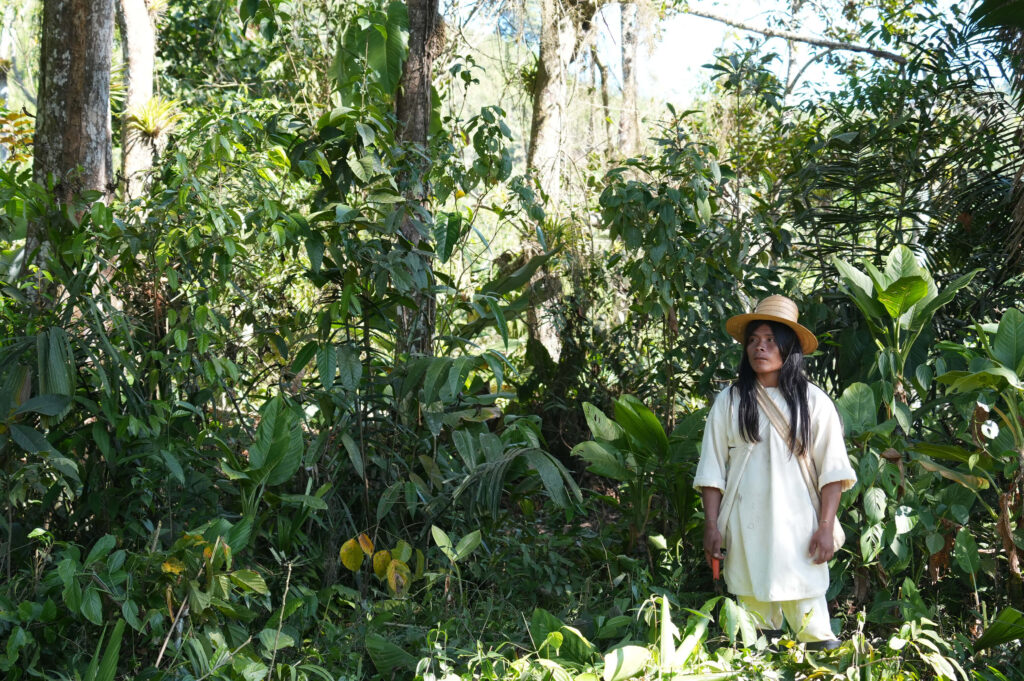
Running Projects
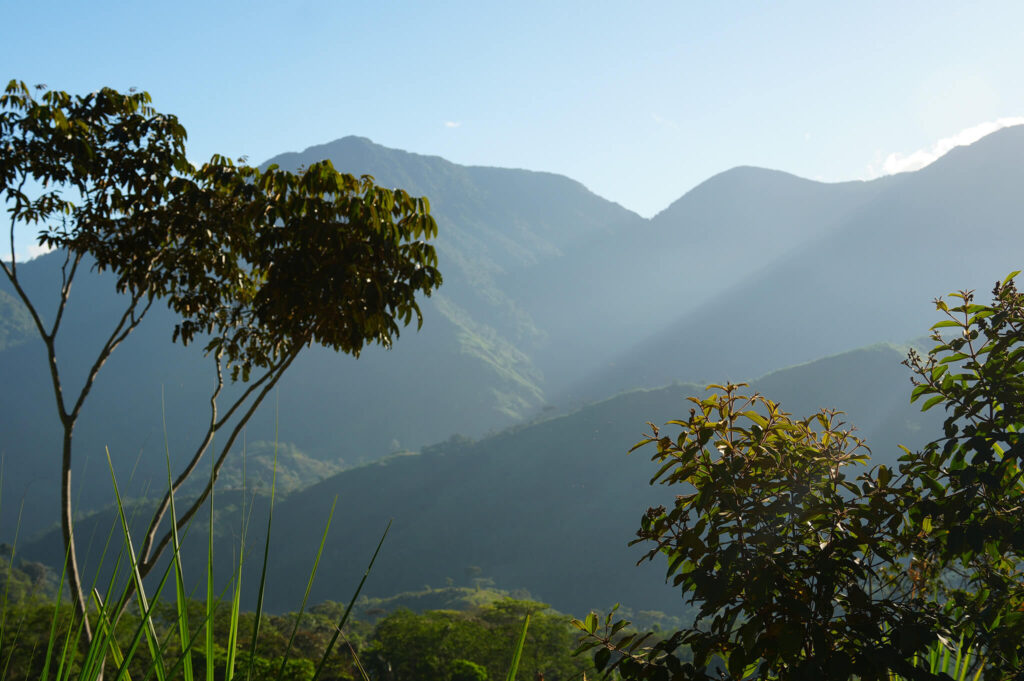
Kogi youth learn English
Many of the Kogi generation growing up now speak Spanish, some better than others but all speak it to some degree. However, the world speaks English. Therefore we support Kogi children to learn English to be able to participate in the world, connect to other indigenous people and speak for themselves internationally if they choose to do so.
The next step is to bring them on a longer exchange to an English speaking country to live in a host family for a few weeks and go to a language school in the UK, USA, Australia or other countries. We need financial support for that project. If anyone has any ideas or feels called to support, please donate and get in contact.
Completed Projects

Workshop May 2025: Indigenous Perspectives on Architecture and Building
This workshop offers a unique perspective on architecture as a living system, fostering harmony between humans, nature, and thought processes. Over two days, we explore themes such as the spiritual role of materials, site selection, and energy balance in construction.
Guided by Kogi elders, experts from Bauhaus Earth and Sterling Presser Architects, participants will gain insights into regenerative design and the link between architecture, emotions, and sustainability. Designed for architects, urban planners, and sustainability professionals and everyone else interested, this workshop connects ancient wisdom with modern challenges.
Spots are limited, and early registration is recommended. The event will be conducted in English.

Workshop May 2025: Meet the Kogi wisdom keepers in Estonia
This workshop offers participants a window into their unique worldview, emphasizing balance and peace within oneself and the environment. Over four days, explore themes such as healing relationships, understanding the interconnectedness of nature, and learning the secrets of water as the source of life.
Guided by Kogi elders, along with Lucas Buchholz and Anna Reisch of the Timeless Wisdom Academy, participants will engage in rituals, reflective discussions, and immersive nature walks. The workshop supports the Kogi’s efforts to reclaim ancestral lands and preserve their ecosystem.
Early registration is recommended, as spots are limited, and the event will be translated into English.

Workshop May 2025: Relationships in Harmony with the Earth
This workshop delves into the Kogi wisdom on relationships and life balance. For the Kogi, an indigenous people from Colombia, relationships—especially partnerships—are vital for maintaining the world’s balance. They see marriage as a union not just of two individuals but also with the Earth, embedding partnerships into the greater context of life.
In Mai 2025 Participants will explore how the Kogi form lasting relationships, maintain harmony, and resolve conflicts. Practical rituals, discussions with Kogi representatives, and insights into the connection between relationships and the Earth will provide inspiration for creating stable, meaningful partnerships.
Limited spots available. Early registration recommended. The workshop will be in German.

Building the academy
We are currently supporting the Timeless Wisdom Academy. Filming with indigenous people and interviewing their elders we start to build a platform full of indigenous wisdom about different topics. We travel to different indigenous people all over the world and capture their knowledge.
Over time a whole library of knowledge will form and provide access for people to engage and learn from it. Have a look at: www.timeless-wisdom.com.
Please contact us if you have access to indigenous people and true elders or wisdom keepers and would like to share that contact with us.

School exchange 2024
A group of 6 people from the Kogi school in the village of Dumingueka came to Germany for 10 days of school exchange. 2 Kogi students, 2 Kogi teachers, 1 Columbian teacher and 1 Mamo had a wonderful exchange at the Freie Schule Tempelhof. For the first time a school exchange between indigenous Kogi and Europe has been made possible.
This however is only the first step. The plan is to keep the connection between the two schools growing and enrich both learning ecosystems – the Kogi one and the one in Germany – with further exchanges in the future.

Tour of Kogi elders in Europe 2023
The highlight of the tour with the Kogi elders in 2023 was the visit of the PAUA conference in Paris. There the Kogi spoke at two occasions and interacted with the other speakers, partly coming from the field of artificial intelligence and entrepreneurship. The meeting of people from these very different backgrounds and very different perspectives was an eye opening experience for many.

Territorial analysis 2023
In 2023 the Kogi mamos came again to Germany. In the community of Tempelhof, as well as in Frankfurt we went to look at sacred sites in urban or rural contexts. In both cases the importance of water got their attention. The Kogi pointed out the special importance between rivers, streams and ponds and the trees growing by their side.
They have a deep spiritual connection nurturing one another and according to the Kogi, one of the most dangerous things is to remove the guardian trees from the waters they are growing next to. More to be analyzed in the future.

Kogi go to Cop28 UAE
An invitation to speak at the COP28 led us and the Kogi to Dubai. The megacities of the United Arab Emirates truly contrasted the Kogi and their understanding of the world. However, once we reached the desert and sat down for a tea with one of the last Bedouin families, still living traditionally, the understanding of their respective views on nature happened instantly.
The sky bars amongst the highest skyscrapers in the world however left the Kogi with question marks regarding the future of humanity. Their speech at COP28 was well received even though only a moderately sized audience showed up.

Building Classrooms 2023
The Kogi school in Dumingueka needed new classrooms. The old ones had been eaten up by termites and were close to collapsing endangering the education and the health of the children in it. Luckily we were able to support the Kogi in the construction of new classrooms that are now all up and fully usable.
The Kogi are very content with the new buildings and more Kogi children can now attend the school that the Mamos decided is necessary for the future of the Kogi people. Thank you to everyone who made that project possible.

Tour of Kogi elders in Europe 2022
With our organization just starting, we organized a big tour of three Kogi elders and their translator through Germany, Austria, Switzerland and Sweden. With 28 days of journey and over 40 conferences it was a huge project for such a young organization.
From conferences, to workshops, to the visits of ancient and sacred sites to territorial analyses and meetings with impact investors, the tour was a huge success and an important step for bringing indigenous Kogi wisdom to Europe. We are very grateful to everyone who has made this incredible journey possible.